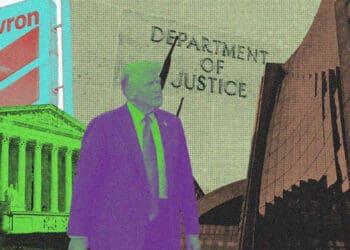Venable’s Paul Debolt and Chris Griesedieck discuss two recent court cases that highlight key ways contractors should act now to prevent and prepare for possible whistleblower complaints in the months to come.
Congress has responded to the recent COVID-19 pandemic with relief spending at historic levels, including federal funds that are enabling agencies to award contracts and grants to assist in the immediate response and recovery effort. With so much federal funding at stake, and its being distributed in emergent, challenging and ever-changing circumstances, improper claims for funds — both intentional and unintentional — are inevitable, opening organizations up to False Claims Act (FCA) liability.
Two Key Court Cases
Fourth Circuit Affirms Dismissal of Complaint under Defense Contractor Whistleblower Protection Act
Last week, the U.S. Court of Appeals for the Fourth Circuit upheld a lower court’s dismissal of a complaint against General Dynamics Information Technology (GDIT) under the Defense Contractor Whistleblower Protection Act (DCWPA).[1]
As the court explained in its decision, the DCWPA “prohibits retaliation against employees of defense contractors who report certain types of misconduct” (internal quotations omitted).” A contractor who discloses to his employer (or certain statutorily identified government entities or officials) information he reasonably believes is evidence of a violation of law, rule or regulation related to a Department contract … or grant cannot be discharged, demoted or otherwise discriminated against for having made the disclosure (citing 10 U.S.C. § 2409(a)(1)(A)).’”
The plaintiff alleged that GDIT had “constructively discharged him by forcing him to choose between” working under the “direct supervision of a government employee,” which the plaintiff believed to be illegal, and resigning. He also alleged that GDIT had “intentionally and maliciously concealed” his “true security clearance level” in violation of Executive Order 12829. The plaintiff argued that his disclosure of these alleged violations of law triggered the DCWPA’s anti-reprisal protections.
The Fourth Circuit disagreed. The court found that the plaintiff failed to “plausibly show that he engaged in a protected disclosure” because he did not establish that the new supervision arrangement violated the Federal Acquisition Regulation (FAR) or any other law. Moreover, the Fourth Circuit agreed with the lower court that “even assuming he made a protected disclosure,” the plaintiff’s “mere discomfort with ‘a supervisory situation contrary to his employer’s government contract’ ‘simply do[es] not rise to the level of [an] intolerable’ condition necessary to transform a voluntary resignation into a constructive discharge.” As to the security clearance issue, the Fourth Circuit held that Executive Order 12829 does not “create a privately enforceable right of action.”
Southern District of New York Dismisses False Claims Act Complaint Alleging Five Categories of Violations
AECOM Government Services Inc., AC First LLC and AECOM/GSS Ltd. (AECOM) requested dismissal of an FCA qui tam whistleblower complaint related to its $1.9 billion maintenance and operational support (MOSC) contract with the U.S. Army.[2]
The qui tam relator “allege[d] that AECOM and its employees violated numerous obligations under the MOSC contract and federal regulations,” including “(1) improper labor billing; (2) inflated reports of man-hour utilization rate; (3) improper purchasing, tracking and returning of government property; (4) entry into a ‘crony’ contract with Bluefish, a payroll processing company; and (5) travel violations.” He also “allege[d] that [AECOM] terminated him in retaliation for reporting the travel and Bluefish violations.”
The Southern District of New York granted AECOM’s motion to dismiss the entire complaint.
The plaintiff had relied on an “implied false certification theory” of FCA liability, which required a showing that AECOM’s “misrepresentation about compliance with a statutory, regulatory or contractual requirement” was “material to the government’s payment decision” (emphasis added). The court agreed with AECOM that its “false certifications of compliance with respect to labor billing and timesheets, MHU rate and government property” were not “material” under the FCA “because the government was aware of those violations but continued to pay [AECOM] and extend the MOSC contract.”
The court rejected the Bluefish allegation because the complaint did “not allege how Bluefish [an AECOM subcontractor/supplier] was not selected on a competitive basis or how the contract was a ‘crony’ contract.” The Southern District also dismissed the plaintiff’s claim that AECOM had violated the FCA’s anti-conversion provision because the complaint did “not identify any specific excess or recoverable item or other property that [AECOM] possessed but failed to deliver to the government.” Similarly, the plaintiff’s “reverse false claim” that AECOM “retained and failed to return overpayments and property from the government” failed because the complaint did not “identify a separate obligation to return overpayments or excess property to the government.”
Finally, the court dismissed the plaintiff’s allegation “that he was terminated in retaliation for reporting AECOM employees’ two travel violations and the Bluefish contract, in violation of 31 U.S.C. § 3730(h).” The former allegations “discussed employee violations of a federal regulation and AECOM policy; they were not complaints that the employer, AECOM, engaged in fraudulent conduct actionable under the FCA.” As to the latter Bluefish matter, the plaintiff failed to “adequately plead that [AECOM was] aware of any protected activity” because he “complained to the Inspector General’s office, but he [did] not allege that anyone at AECOM knew about that complaint.”
Key Takeaways to Prevent and Prepare for Future Whistleblower Complaints
The Greer and Foreman cases demonstrate key insights that all contractors, and especially those operating in the currently evolving environment, should bear in mind to avoid and mitigate the impact of whistleblower complaints:
- Review Contract Terms and Update Compliance Policies – Now is the time to carefully review the terms and conditions of new federal awards, including incorporated FAR and Defense Federal Acquisition Regulation Supplement (DFARS) clauses, for key responsibilities, including those that are not directly related to the major objectives in the performance work statement/statement of work. Focusing on essential performance goals is understandable in an emergency, but a failure to comply with other contractual or legal obligations (such as the security clearance or subcontracting competition requirements at issue in Greer and Foreman) can easily draw a whistleblower complaint — justified or not — after the crisis has abated. Contractors should ensure consistency between their compliance programs and the terms of any new awards, particularly any terms material to government payment decisions.
- Document Decisions Made and Their Basis – Misconduct allegations may not be disclosed to the proper personnel right away and might not advance up the corporate ladder until years later when the issue reaches litigation. It is therefore crucial to document in a timely manner expenditures and other important contract and performance actions so that their factual, contractual and legal basis is clear to anyone raising questions after the fact. Such recordkeeping — including references to contract, FAR and DFARS clauses, as well as any government direction, that provided authority for a given action — can also help weed out meritless complaints early in the process.
- Add Whistleblower Protection to Personnel Decisions – Contractors should determine which whistleblower legal protections apply to their employees and include compliance with these laws in their existing procedures for promotion, demotion, suspension and termination of personnel.[3]
- Take Employee Complaints Seriously – Frequently, employees become whistleblowers because they do not believe that their employer is taking their concerns seriously. Companies need to listen to employee concerns, investigate when appropriate and take appropriate action if the employee’s concerns are warranted.
[1] See Greer v. Gen. Dynamics Info. Tech., Inc., No. 19-1235 (4th Cir. Apr. 13, 2020)”) (unpublished per curiam opinion).
[2] See United States ex rel. Foreman v. AECOM, No. 16 CIV. 1960 (LLS) (S.D.N.Y. Apr. 13, 2020).
[3] Common protections include not just 10 U.S.C. § 2409 and 31 U.S.C. § 3730(h) referenced above, but also those listed in FAR Subpart 3.9 (which implements 41 U.S.C. § 4705 and 41 U.S.C. § 4712, among other authorities), and FAR 52.203-17.



 Paul A. Debolt is a partner and co-chair of
Paul A. Debolt is a partner and co-chair of  Chris Griesedieck joined Venable’s Government Contracts practice group as an associate in December, 2016. Chris advises on and represents contractors and grant recipients in a broad range of issues, including bid protests, Contract Disputes Act claims, prime-subcontractor agreements and disputes and complex regulatory compliance.
Chris Griesedieck joined Venable’s Government Contracts practice group as an associate in December, 2016. Chris advises on and represents contractors and grant recipients in a broad range of issues, including bid protests, Contract Disputes Act claims, prime-subcontractor agreements and disputes and complex regulatory compliance.








